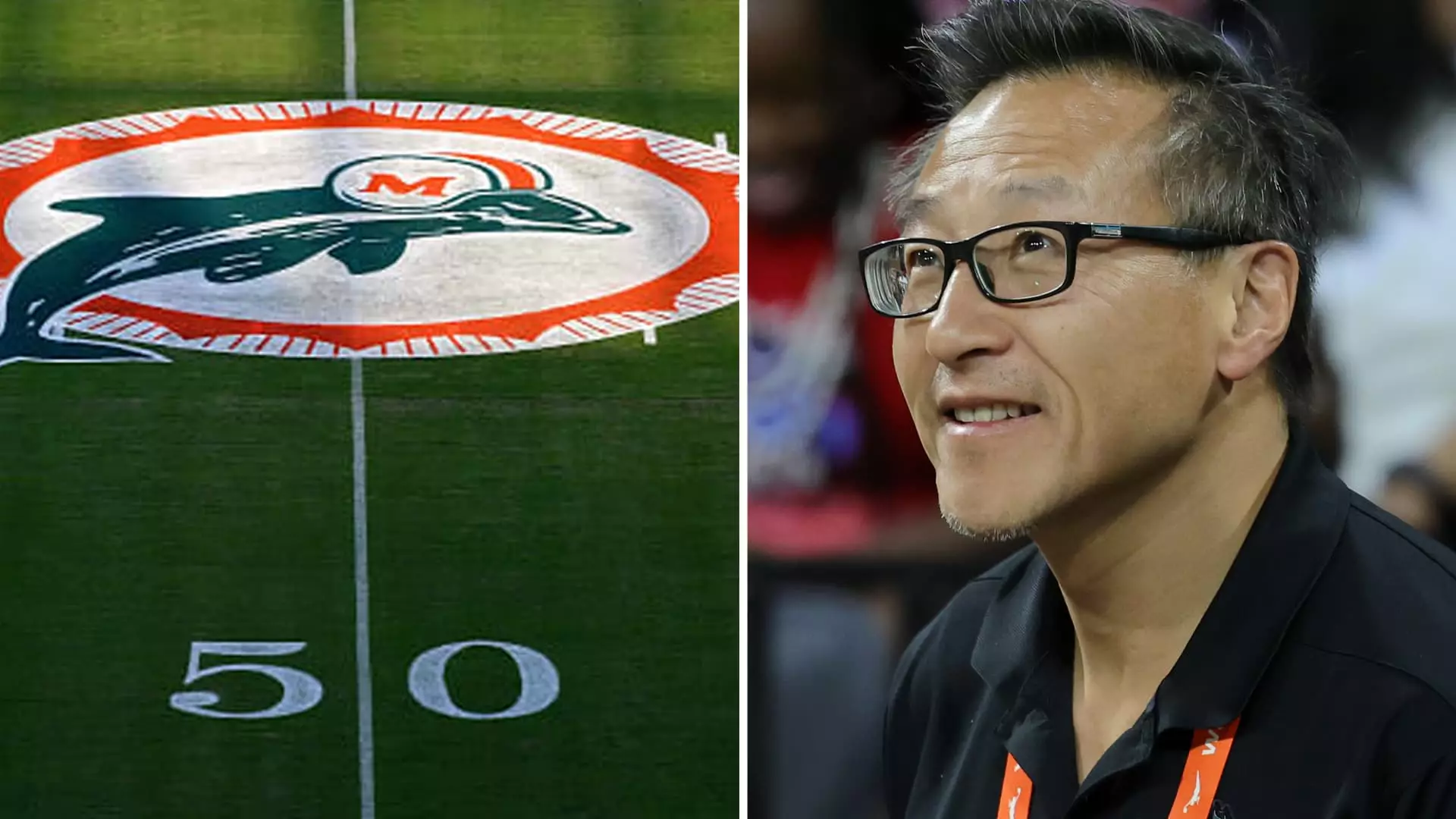The landscape of professional sports is undergoing a transformative shift, particularly within the realm of ownership structures. As franchises explode in value, team owners are increasingly looking for innovative ways to not only protect their investments but to also generate additional streams of revenue. The Miami Dolphins, currently the eighth most valuable team in the National Football League (NFL), are at the forefront of this trend, as they engage in advanced discussions to sell a minority stake in the team. This potential deal involves notable players in the private equity space, specifically Ares Management and billionaire entrepreneur Joe Tsai.
The proposed acquisition is poised to elevate the Dolphins’ valuation significantly, with experts estimating the combined worth of the team and its associated assets—including the Hard Rock Stadium, operational rights for the Miami Grand Prix, and approximately half of the Miami Open—at a staggering $8.1 billion. This valuation not only underscores the Dolphins’ financial clout but also highlights broader trends in the sports industry where owners seek to maximize revenues from various sources. The Dolphins themselves generated revenue amounts to $673 million in 2023, an impressive figure that reflects the team’s robust performance on and off the field.
Moreover, the deal represents a critical milestone as it would be the NFL’s first foray into private equity investment following recent changes in the league’s financial regulations. In August, the NFL took a notable step by approving select private equity firms, including Ares, to invest up to 10% in team ownership, signaling a new era in sports finance where traditional ownership is augmented by investment from private equity entities.
Business tycoon Stephen Ross, who purchased the Miami Dolphins for $1.1 billion in 2009, epitomizes the forward-thinking approach many owners are adopting. Not only does Ross manage the team, but he also oversees the Hard Rock Stadium—a rare dual ownership scenario that provides him with a unique opportunity to capitalize on numerous events held at the venue. Ross’s refusal to relinquish control even in the face of substantial offers, including a reported $10 billion bid for the team and other assets, illustrates a commitment to maintaining family legacy and a desire to build a long-term empire within the realm of sports.
Ross’s strategic mindset is reflective of a growing number of owners who see value beyond the traditional confines of team performance, venturing into various entertainment and sporting events to enhance their overall revenue. This integrative approach is increasingly common among team owners who recognize the immense potential of leveraging venue ownership—an asset that can host a myriad of events from concerts to sporting tournaments.
While discussions are still ongoing, Joe Tsai’s interest in acquiring a stake in the Dolphins signifies an intent to further diversify his already expansive sports portfolio. As the owner of the Brooklyn Nets and the New York Liberty and operator of the Barclays Center, Tsai has been on an ambitious expansion trajectory. His ownership of the San Diego Seals and co-ownership of the Las Vegas Desert Dogs highlights his proactive stance in securing a multi-faceted presence in the sports landscape.
This trend of strategic acquisitions reflects a broader motive among contemporary owners: building a cohesive narrative around their franchises while maximizing operational synergies. Tsai’s potential investment in the Dolphins, alongside the expansive interests he already holds in multiple franchises, reinforces the notion that the future of sports ownership will be characterized by diversification and strategic partnerships.
The Miami Dolphins’ potential minority stake sale represents more than just a transaction; it symbolizes the evolving nature of sports finance and ownership dynamics. As the NFL opens its doors to private equity investment, it paves the way for new alliances that enhance the financial sustainability of sports franchises. The trend is clear: team owners are shifting their strategies to adapt to an ever-changing landscape, where collaboration with private equity partners offers not just financial backing, but also a pathway to expanding their operational footprint within the competitive sports arena. As this narrative unfolds, the implications for the Dolphins and the broader NFL ecosystem will undoubtedly be profound, shaping the future of sports financing for years to come.

